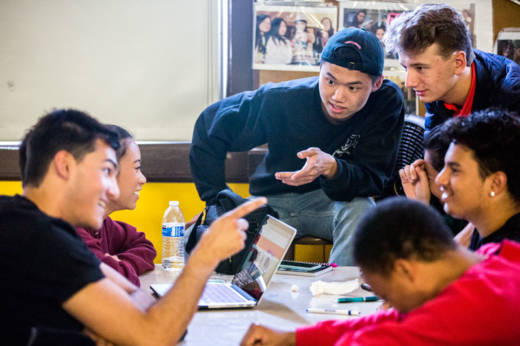Middle and high school students are creative, skilled technology users and they’ve integrated digital content and communications into their lives. Now with KQED Learn, they’ll have the opportunity to use a free, safe and flexible digital platform to support their academic activities, a platform that connects classrooms across communities, inspiring students to research, reflect and respond to timely topics.
SAN FRANCISCO March 22, 2018
A Platform for Inquiry, Student‐Centered Learning
KQED Learn puts student inquiry and student voice at the center of learning and students’ own questions contribute to the curriculum pathway. Bi‐weekly, KQED Learn delivers a new topic and launch questions from Above the Noise, KQED’s youth video series. This series cuts through the hype and takes a deep dive into the research behind current issues. With KQED Learn’s Go Above the Noise, students watch the videos, read the accompanying articles and then join the discussion, using evidence from the video, article or other sources they’ve found to provide a written response to the question. They can comment on other students’ responses and collaborate on adding new sources and pieces of evidence.
KQED Learn also provides Investigations that give students the opportunity to further explore an issue presented in Go Above the Noise or other topics posted by KQED. Investigations are created for STEM and humanities classrooms, and require research and media making to complete. Students can collaborate with their classmates and with peers around the country by posting, rating and commenting on resources in a shared workspace.
KQED Learn enables students to post and share media responses they create in the form of videos, blog posts, infographics or podcasts to share with peers. Students also have the opportunity to reflect on their research and collaboration processes to explore what went well and what they might do differently as they continue to participate in the site’s inquiries and investigations.
